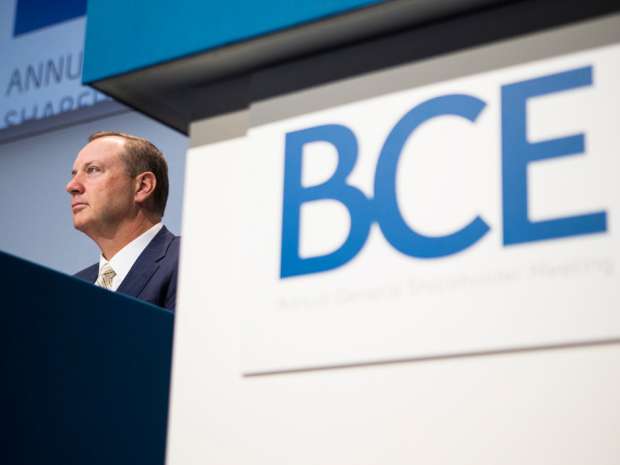by Franklin Templeton Investments blog, Franklin Templeton Investments
The Digest
Last week was again volatile for equity markets, with investors focused on rising inflationary pressure, central bank narrative and the threat of a US government shutdown. After a weak start to the week, markets recovered ground as the threat of a US government shutdown was averted. Although sentiment still feels brittle, markets ended the week in positive territory, with the MSCI World Index up 0.7% and regionally, the STOXX Europe 600 Index was up 1%, the S&P 500 Index was up 0.8%, whilst the MSCI Asia Pacific Index remained unchanged.1
Inflationary Pressures Remain Front and Centre
As noted in recent weeks, investor focus was on inflationary pressures and the impact on bond markets as many government bond yields continue to widen. Intertwined with these issues is how central banks react and adapt to this environment.
It was hard to miss the price increases in energy markets given the extensive media coverage, with gas prices soaring—European gas is up 105% year-to-date (YTD) on restricted supply, rising demand and depleted storage facilities. Elsewhere, crude oil rose to levels last seen in 2014, topping US$80 per barrel. Other commodity prices also surged. There was some respite for gas markets midweek as Russia looked to calm nerves over supply, but prices remain elevated.
The pain felt by both industry and consumers on these soaring costs has also been clear. Although consumers in the United Kingdom are protected by energy price caps, the cost of higher input costs will certainly feed into consumer products. Over the weekend, Kraft Heinz CEO Miguel Patricio commented that inflation was “across the board” and that consumers will need to get used to higher food prices.2 Evidence of this is seen in the UN food price index, which is trading near record highs. Rising shipping/haulage costs, poor harvests in Brazil, droughts in Russia etc., are also factors leading to rising prices.
In this context, talk of inflationary pressures being transitory seems to be a distant memory. Market expectations for inflation are elevated. In the United Kingdom, the 10-year break inflation rate is at the highest level since 2008 and in Germany the same measure was at its highest level since 2013.3 Likewise in the United States, 10-year breakevens are moving back to recent highs, although not at the same extreme pace as the United Kingdom.
The impact of these strains on global economies is a key talking point, with the prospect of “stagflation”—rising inflation with little economic growth—a genuine concern.
That said, the US Purchasing Managers Index (PMI) data has remained in expansionary territory in the face of rising pricing pressures.
Whatever the true extent of future stagflation, the impact of inflationary pressures on bond yields is clear as the US 10-year Treasury yield has climbed to 1.61%, the UK 10-year gilt yield has climbed to 1.20%—its highest level since 2019, over 50 basis points (bps) wider than three months ago—and the German 10-year Bund yield climbed to -0.14% (+22 bps in the past three months).4
Central Bank Reaction
In this context, the action of central banks in Europe was in focus as last week saw a surprise from the Polish central bank, which unexpectedly raised interest rates 40 bps to 0.5% because of inflationary pressures. The European Central Bank (ECB) continues to stick to a dovish path for now, but the Bank of England (BoE) is in focus as rhetoric from its members becomes increasingly hawkish and as the United Kingdom faces added pressures from Brexit dynamics.
Last week saw BoE Chief Economist Andy Haldane note: “magnitude and duration of the transient inflation spike is proving greater than expected”.5 Over the weekend, we also had the hawkish Monetary Policy Committee member, Michael Saunders, commenting that a tightening of policy may be “significantly earlier” than previously thought. Bailey also warned of a potentially “very damaging” period of inflation unless action is taken. With that, the market expects the UK interest rate to be at 75 bps by November 2022, vs. 10 bps currently, and expects a 25 bps hike by year end.
On the other hand, the ECB seems more concerned about the rising cost of capital and still believes the latest inflationary pressures are transitory. There were reports that the ECB was considering buying more bonds to prevent any market turmoil when emergency purchases get phased out next year.
In the United States, we will have another good steer on the Federal Reserve’s (Fed’s) thinking this week as the minutes from the last policy meeting are released. Whilst there is no expectation of a rate increase imminently, it is expected the Fed will begin to taper its emergency pandemic support in the coming months.
The Week in Review
Europe
European equities saw a large value-led rally last week to close higher. Nonetheless, market conditions feel very mixed at the moment as investors fight the overhang of central bank hawkishness, peak growth, rising commodity prices and supply chain issues. Rising bond yields helped fuel the rotation out of growth stocks, with inflation seemingly less transitory than first predicted. Over the next few weeks, attention will likely shift to corporate earnings season, where any hints around supply chain issues or cost inflation pressures are likely to be very closely watched. There was a cautious tone to fund flows last week as many investors rotated out of equities and into cash. Value stocks in Europe were favoured over momentum last week—the question is whether this trend will continue. Some market participants see value as still cheap by historical standards, with pockets of opportunity.
In terms of macroeconomic data, the Eurozone August Producer Price Index (PPI) was up 1.1% on the month and 13.4% year-over-year (Y/Y), slightly lower than expected Inflationary pressures in Europe remain strong, however. The final September PMI report confirmed slowing growth, coming in at 56.2 vs 59.0 previously. Rising price pressures and issues relating to supply shortages were key drivers there.
In Germany, the political discussion appears to be leading towards a “Traffic Light” government, made up of the centre-left SPD (Red), the pro-business Liberal FDP (Yellow) and the Greens parties. Talks continue, but the Christian Democratic Union (CDU) seems to be in a weak position, as leader Armin Laschet stated last week that he intends to step aside.
United States
US equities saw some respite at the end of last week following their recent slump. Despite that, volatility remains relatively high, with the VIX Index spiking back to 24 mid-week.6 The same themes continue to be in focus, with the discussion around stagflation front and centre. The heightened push and pull surrounding the higher-profile themes/debates, including “buy-the-dip vs sell-the-rip”, has left the market feeling very mixed of late.
The September non-farm payroll print was weaker than expected, a huge miss, showing a rise of 194,000 vs. expectations for an increase of 500,000. In terms of sectors, energy stocks, the year-to-date outperformer in the United States, led again. Financials were also higher, while real estate investment trusts (REIT) remain under pressure and were last week’s underperformers.
The potential debt ceiling crisis has been an overhang over US markets of late. Last Wednesday, Democrats said they could accept a surprise offer from Senate Minority Leader Mitch McConnell to raise the debt limit for two months. Republicans had offered the short-term debt limit increase that would last into December, and Democrats signalled their intention to accept the deal. However, this simply shifts the problem to December, a time when equity market liquidity becomes more constrained. It is also a time where the market is more likely to be grappling with the threat of tapering. So, whilst equity markets felt a little relief last week on the announcement, there is a feeling that what was agreed is simply a case of “kicking the can down the road”.
Last week’s big economic release was the September employment report on Friday. Employment figures have been a clear focus for the Fed. September payrolls grew by 194,000, far below expectations and below the 366,000 rise in August. The release noted gains in leisure/hospitality, professional/business services, and retail (all areas of recent strong growth), while public education jobs declined. The unemployment rate dropped to 4.8%, better than expectations and better than the prior month’s 5.2% level.
The big question remains around what this means for Fed tapering plans. Fed Chair Jerome Powell had said he felt the employment test for tapering had been “all but met” and he was not looking for a “knockout” September report. For the market, the miss was received well, as many touted “bad news is good news” and felt the Fed may soften its growing hawkish commentary.
Whilst a handful of meaningful macro themes rumble on, the market will now have the latest earnings season to deal with this week. JP Morgan reports earnings on Wednesday, followed by Citigroup, Bank of America, Wells Fargo and Morgan Stanley on Thursday, and Goldman Sachs on Friday.
Asia and Pacific
A mixed bag for Asian markets last week, with Australian equities up 2% (on commodity strength), while equities in Hong Kong were up1%, South Korea’s equity benchmark was down 2% and Japan’s Nikkei Index was down 2.5%. It was a quieter week as China was mostly closed for Golden Week holidays.
The weak performance in Japan has been referred to by some as the “Kishida shock” as it followed Prime Minister Kishida’s inauguration. There are fears that he is looking to raise capital gains taxes, something which spooked the market and forced the administration to state he’s not considering changes to Japan’s capital gains tax because he’s focused on other aspects of his policy agenda.
Elsewhere, tension between China and Taiwan remains heightened as Chinese warplanes performed a number of flights in Taiwanese airspace and China’s President Xi Jinping stated unification will be achieved. In response, Taiwanese President Tsai Ing-Wen stated the island faced “unprecedented challenges”.
Week Ahead
Monday 11 October 2021
- China: aggregate financing CNY, money supply, new yuan loans CNY, foreign direct investment (FDI) YTD, year-on-year (Y/Y) CNY
- Japan: machine tool orders Y/Y
- Italy: Industrial Production (IP)
- Bond markets will be closed in the United States and Canada for the US Columbus Day/Indigenous People’s Day holiday and Canada’s Thanksgiving Day.
Tuesday 12 October
- UK: British Retail Consortium (BRC) sales like-for-like Y/Y
- Japan: bank lending, PPI YoY
- Australia: National Australia Bank (NAB) business conditions and business confidence
- Germany: wholesale price index Y/Y
- UK: Employment data
- Germany: ZEW Survey expectations, Germany ZEW Survey current situation
- Eurozone: ZEW Survey expectations
- US: NFIB small business optimism, JOLTS job openings
- Canada: Bloomberg nanos confidence
Wednesday 13 Wednesday
- Australia: Westpac consumer confidence index
- Japan: Money stock, core machine orders Y/Y
- UK: IP Y/Y, manufacturing production Y/Y, construction output Y/Y, index of services three-month/ three-month, visible trade balance GBP/Mn, monthly gross domestic product (GDP) (month-on-month), monthly GDP (three-month / three-month)
- Germany: Consumer Price Index (CPI)
- Eurozone: IP WDA Y/Y
- US: MBA mortgage applications, CPI Y/Y, CPI (ex food and energy) Y/Y, CPI core index SA, real average hourly earnings Y/Y, real average weekly earnings Y/Y, Federal Open Market Committee (FOMC) meeting minutes
- China: trade balance CNY, imports and exports Y/Y CNY, trade balance, imports and exports Y/Y
Thursday 14 October
- UK: Royal Institution of Chartered Surveyors (RICS) house price balance
- Australia: consumer inflation expectation, employment change, unemployment rate
- China: CPI Y/Y, PPI Y/Y
- Japan: IP Y/Y
- Spain: CPI
- UK: BoE bank liabilities/credit conditions surveys
- US: Initial jobless claims, continuing claims, PPI final demand Y/Y, PPI (ex food and energy) Y/Y, PPI (ex food and energy), trade Y/Y
Friday 15 October
- Japan: Bloomberg October Japan economic survey
- Eurozone: EU27 new car registrations
- France: CPI
- Italy: CPI
- Eurozone: trade balance
- Italy: trade balance
- US: Empire manufacturing, retail sales (ex automobiles and gas), retail sales control group, import and export price index Y/Y, business inventories, University of Michigan sentiment and current conditions
What Are the Risks?
All investments involve risks, including the possible loss of principal. The value of investments can go down as well as up, and investors may not get back the full amount invested. Stock prices fluctuate, sometimes rapidly and dramatically, due to factors affecting individual companies, particular industries or sectors, or general market conditions. Bond prices generally move in the opposite direction of interest rates. Thus, as prices of bonds in an investment portfolio adjust to a rise in interest rates, the value of the portfolio may decline. Investments in foreign securities involve special risks including currency fluctuations, economic instability and political developments. Investments in developing markets involve heightened risks related to the same factors, in addition to those associated with their relatively small size and lesser liquidity.
Any companies and/or case studies referenced herein are used solely for illustrative purposes; any investment may or may not be currently held by any portfolio advised by Franklin Templeton. The information provided is not a recommendation or individual investment advice for any particular security, strategy, or investment product and is not an indication of the trading intent of any Franklin Templeton managed portfolio.
Past performance is not an indicator or guarantee of future performance. There is no assurance that any estimate, forecast or projection will be realised.
Links to External Sites
Franklin Templeton is not responsible for the content of external websites.
The inclusion of a link to an external website should not be understood to be an endorsement of that website or the site’s owners (or their products/services).
Links can take you to third-party sites/media with information and services not reviewed or endorsed by us. We urge you to review the privacy, security, terms of use, and other policies of each site you visit as we have no control over, and assume no responsibility or liability for them.
Important Legal Information
This material is intended to be of general interest only and should not be construed as individual investment advice or a recommendation or solicitation to buy, sell or hold any security or to adopt any investment strategy. It does not constitute legal or tax advice. This material may not be reproduced, distributed or published without prior written permission from Franklin Templeton.
The views expressed are those of the investment manager and the comments, opinions and analyses are rendered as at publication date and may change without notice. The underlying assumptions and these views are subject to change based on market and other conditions and may differ from other portfolio managers or of the firm as a whole. The information provided in this material is not intended as a complete analysis of every material fact regarding any country, region or market. There is no assurance that any prediction, projection or forecast on the economy, stock market, bond market or the economic trends of the markets will be realised. The value of investments and the income from them can go down as well as up and you may not get back the full amount that you invested. Past performance is not necessarily indicative nor a guarantee of future performance. All investments involve risks, including possible loss of principal.
Any research and analysis contained in this material has been procured by Franklin Templeton for its own purposes and may be acted upon in that connection and, as such, is provided to you incidentally. Data from third party sources may have been used in the preparation of this material and Franklin Templeton (“FT”) has not independently verified, validated or audited such data. Although information has been obtained from sources that Franklin Templeton believes to be reliable, no guarantee can be given as to its accuracy and such information may be incomplete or condensed and may be subject to change at any time without notice. The mention of any individual securities should neither constitute nor be construed as a recommendation to purchase, hold or sell any securities, and the information provided regarding such individual securities (if any) is not a sufficient basis upon which to make an investment decision. FT accepts no liability whatsoever for any loss arising from use of this information and reliance upon the comments, opinions and analyses in the material is at the sole discretion of the user.
Products, services and information may not be available in all jurisdictions and are offered outside the U.S. by other FT affiliates and/or their distributors as local laws and regulation permits. Please consult your own financial professional or Franklin Templeton institutional contact for further information on availability of products and services in your jurisdiction.
Issued in the U.S. by Franklin Distributors, LLC, One Franklin Parkway, San Mateo, California 94403-1906, (800) DIAL BEN/342-5236, franklintempleton.com – Franklin Distributors, LLC, member FINRA/SIPC, is the principal distributor of Franklin Templeton U.S. registered products, which are not FDIC insured; may lose value; and are not bank guaranteed and are available only in jurisdictions where an offer or solicitation of such products is permitted under applicable laws and regulation.
Views You Can Use
Innovation Builds Deep Water Technology Waves
The next decade will see an urgent and widespread boom in investments in innovation across all economic sectors, according to Stephen Dover and Kim Catechis of the Franklin Templeton Investment Institute. They say this technology wave will be experienced in both private and public sectors, and in every facet of investment portfolios for years to come. Below are some of their thoughts from the Institute’s Deep Water Waves paper.Read More.
The Value of Being Actively and Constructively Engaged
Robust engagement with company management can be key in sparking catalysts that unlock shareholder value and potentially lead to better returns over the longer term, according to Franklin Mutual Series Environmental, Social and Governance (ESG) Ambassador Tim Rankin. Read More
Three Reasons We Remain Bullish Emerging Markets Long Term
Emerging markets have seen progress on back of an uptick in vaccination rollouts, but the recent Chinese regulatory crackdown and further virus outbreaks have caused equities to generally underperform year to date relative to developed markets. With a focus on emerging markets outside of Asia, our Emerging Markets Equity Senior Managing Director Chetan Sehgal nonetheless remains bullish on the long-term potential of emerging markets and outlines three main reasons: debt, valuations and cashflows. Read More.
Coalition Politics: Compromise Is Key to Funding Germany’s Future
A three-party coalition could soon govern Germany for the first time in the country’s history following recent elections. Matthias Hoppe, senior vice president and portfolio manager, Franklin Templeton Investment Solutions, believes uncertainty caused by coalition talks is likely to increase volatility in Europe’s financial markets, but changing a conservative attitude to public spending is the real challenge for a new government as Germany wrestles with the reality of increasing macro-economic imbalances and a stated aim to achieve carbon neutrality by 2045. Read More.
Greener Post-Election Germany Likely, but Limited Fixed Income Impact
The German election resulted in change in party leadership, but market impact should be limited, according to David Zahn, our Head of European Fixed Income. He shares an overview of the election implications. Read More.
Evergrande Crisis and Contagion Risks
Our Emerging Markets Equity team shares its views on Chinese property developer Evergrande and the real estate sector in general. They don’t see risk of systemic contagion. Read More.
China’s Regulatory Tightening: Our View on Goals and Scope
China’s government recently enacted new regulations on a number of industries, which has caused some investor concern. Our Emerging Markets Equity team follows up some of its initial commentary on the matter here, noting policies do not have a uniform effect on companies. Read More.
_______________
1. Indices are unmanaged and one cannot directly invest in them. They do not include fees, expenses or sales charges. Past performance is not an indicator or a guarantee of future results.
2. Source: BBC, “Kraft Heinz says people must get used to higher food prices”, 10 October 2021.
3.Source: Bloomberg. The “breakeven inflation rate” represents expectation of inflation for the next 10 years, derived from the difference between conventional bond yields and those linked to inflation.
4. One basis point is equal to 0.01%.
5. Source: Reuters, “BoE’s Pill says size and duration of inflation spike bigger than expected”, 7 October 2021.
6. The CBOE Market Volatility Index measures market expectations of near-term volatility conveyed by S&P 500 stock index option prices. Indices are unmanaged, and one cannot directly invest in them. They do not include fees, expenses or sales charges. Past performance is not an indicator or a guarantee of future performance.
This post was first published at the official blog of Franklin Templeton Investments.















